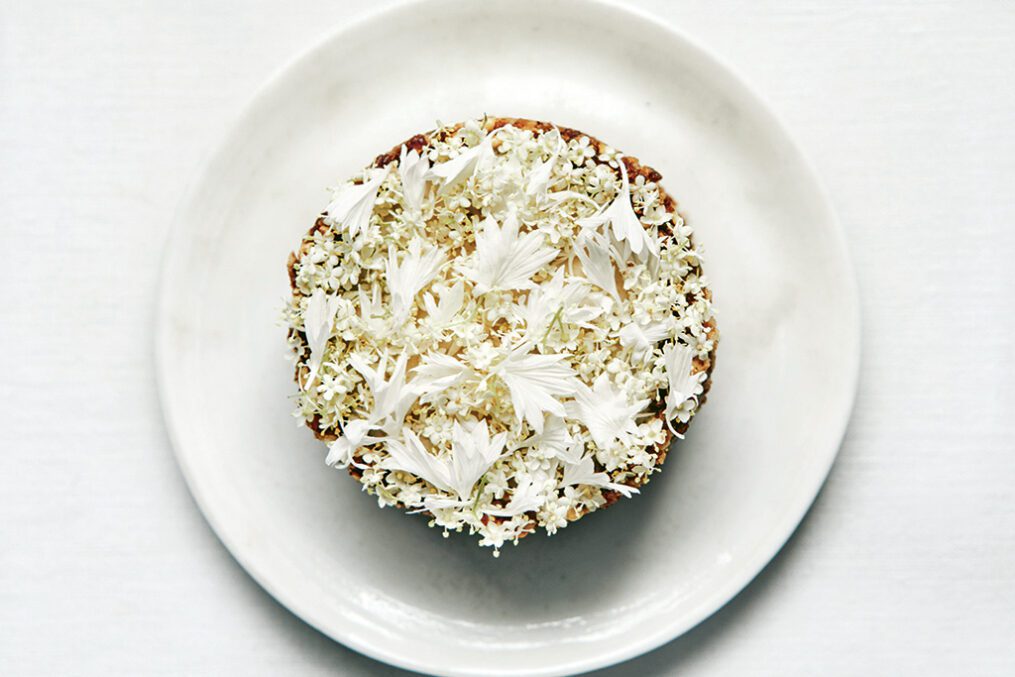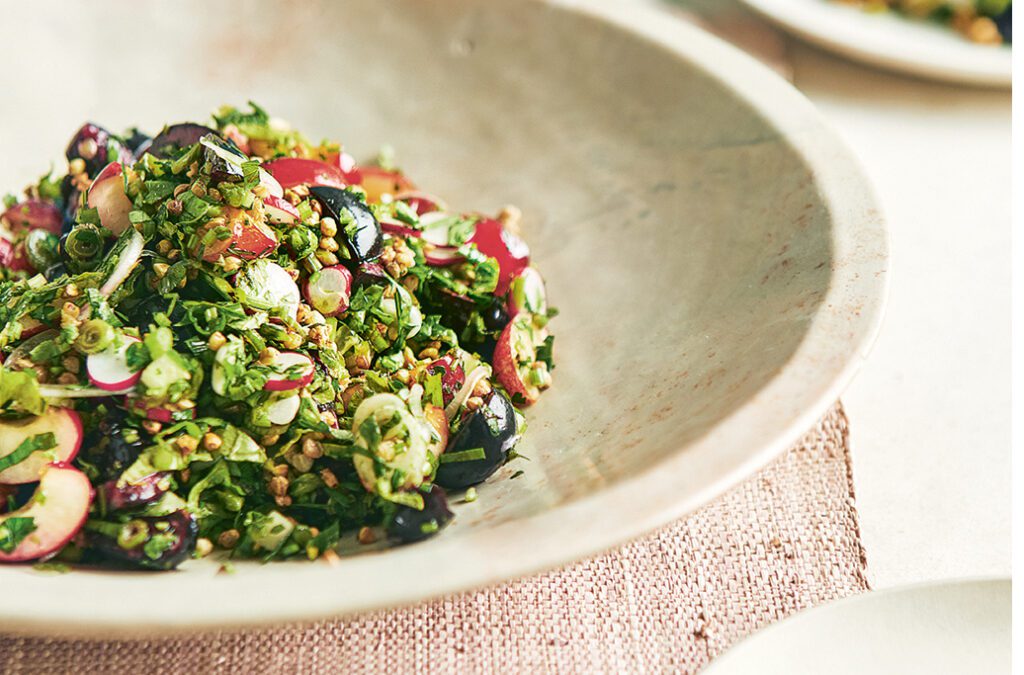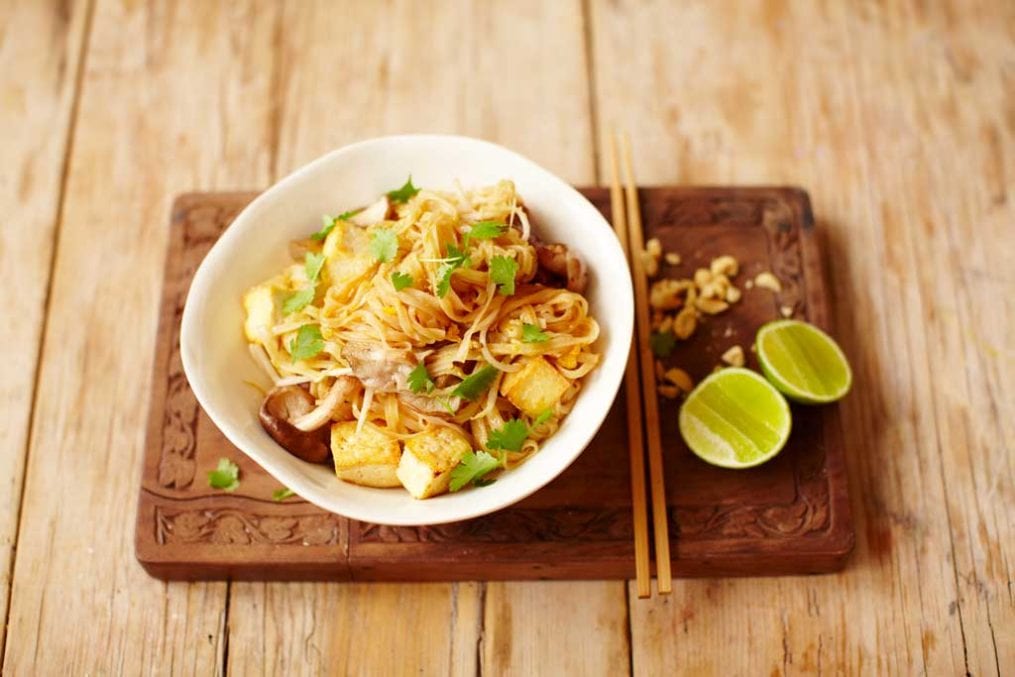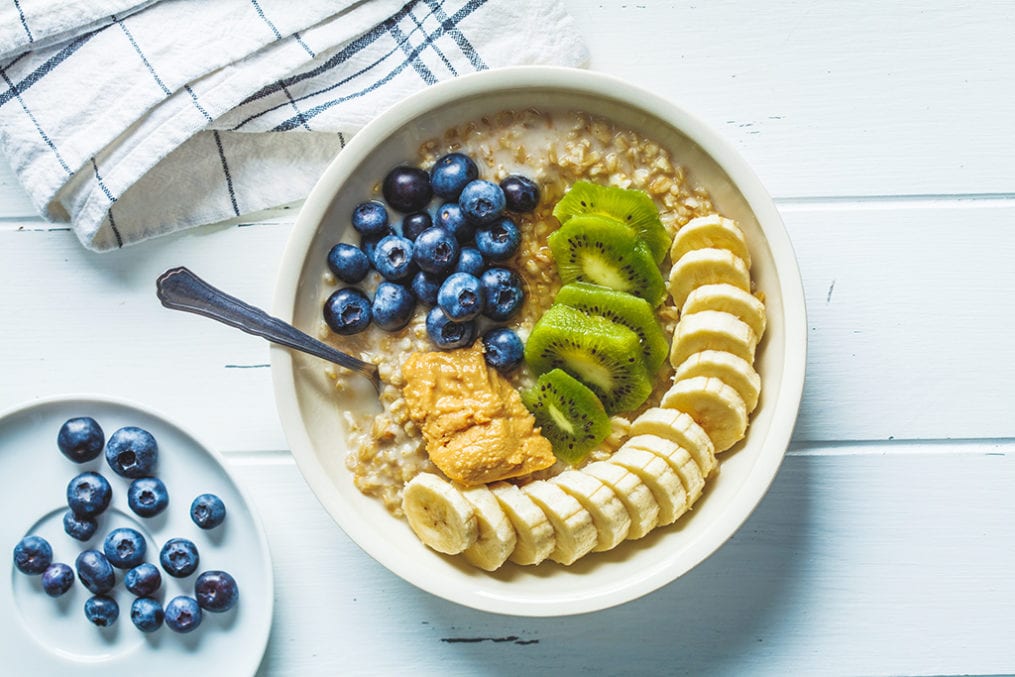The Food Guru: 6 steps to a non-boring salad
Salads need not be dull. Follow these simple steps from our Food Guru Kim Morphew to create a nutritious – and satisfying – leafy dish.
Step 1: All about that base
Every good salad needs a base and there are just so many wonderful flavoured leaves available these days, each bringing a different flavour, texture, colour and nutritional boost to the plate.
Look out for:
Bitter: try striking red and white radicchio or chicory.
Peppery: watercress or wild rocket.
Crisp: cos, romaine and little gem.
Soft: the British round or lambs lettuce.
Others: tender pea shoots, tatsoi with luscious dark leaves and a mustard flavour, young and tender baby spinach, red chard for a touch of colour, or frisse for a spiky, firm-textured leaf.
Step 2: Raw additions
Lots of raw veg works well – deviate from the usual cucumber and tomato and get creative:
1 Grated raw carrot, courgette or beetroot – Try different types, like yellow courgette, candy stripe or golden beets.
2 Diced or sliced avocado
– toss with lemon or lime juice if making in advance.
3 Finely sliced spring or red onions work well with their more delicate flavour.
4 Peppers – diced or sliced. Red, yellow and orange are sweeter than green. Try pointed ones for an even sweeter taste.
5 Radishes – grate or slice white, red or breakfast radishes for a peppery kick.
6 Beansprouts – great for a fresh crunch.
7 Beans and peas
– runner beans, fine green beans, mange tout, sugar snap and peas. Blanch in boiling water, then plunge into cold to keep them crisp and drain.
8 Exotic fruit – diced mango, coconut shavings, papaya and pineapple!
Step 3: A touch of carb
Include just enough to keep the balance. Use wholegrain options to help keep you feel fuller for longer.
Tinned pulses such as chickpeas, butter beans and cannellini beans are great, or add wholewheat giant couscous, quinoa and black or red rice over your salad to give every mouthful added bite.
Alternatively, use up leftovers, such as slice boiled new potatoes or slightly stale toasted sourdough bread used as croutons.
Read more: How to build a better lunch boxStep 4: Add a protein hit
For a salad to be filling, it needs to be high in protein. This can be anything from steamed salmon, seared tuna, lean chicken, leftover lean roast meat, like beef, or seafood, like prawns and crab.
Spice up the flavour by marinating cubes of chicken in Indian spices before grilling, or stir-fry chunks of salmon in miso paste before serving on your oriental-inspired salad. If you’re vegetarian, try sliced avocado with a balsamic drizzle and a little feta cheese.
Step 5: Time to get dressed
Making your own dressing is so simple! A basic dressing uses three parts oil to one part vinegar or acid.
To reduce the fat content further, replace half the oil with cold water, or for fat-free, blend together 250g fat-free natural yoghurt, 1tsp English mustard, ½ garlic clove, a small handful of basil, 1 tbsp cider vinegar and seasoning until smooth (keep refrigerated for up to three days).
Another idea: whizz up some tinned chickpeas with Greek yoghurt until smooth, then add a little tahini, lemon juice and a splash of water to make it drizzle-able
Step 6: A final sprinkle of crunch
Never forget the ‘crunch factor’; I consider it a little sprinkle of magic to complete the dish. Some of my favourites include:
1 Pomegranate seeds
2 Toasted seeds
3 Tiny seeds: such as chia seeds, or onion or poppy seeds
4 Chopped nuts
5 Sprouts or shoots:
Lentil, pea and bean shoots are definite winners.
Think you can do better? Show us how you smarten up your salads by tagging @healthymagdaily in your foodie Instagram snaps












